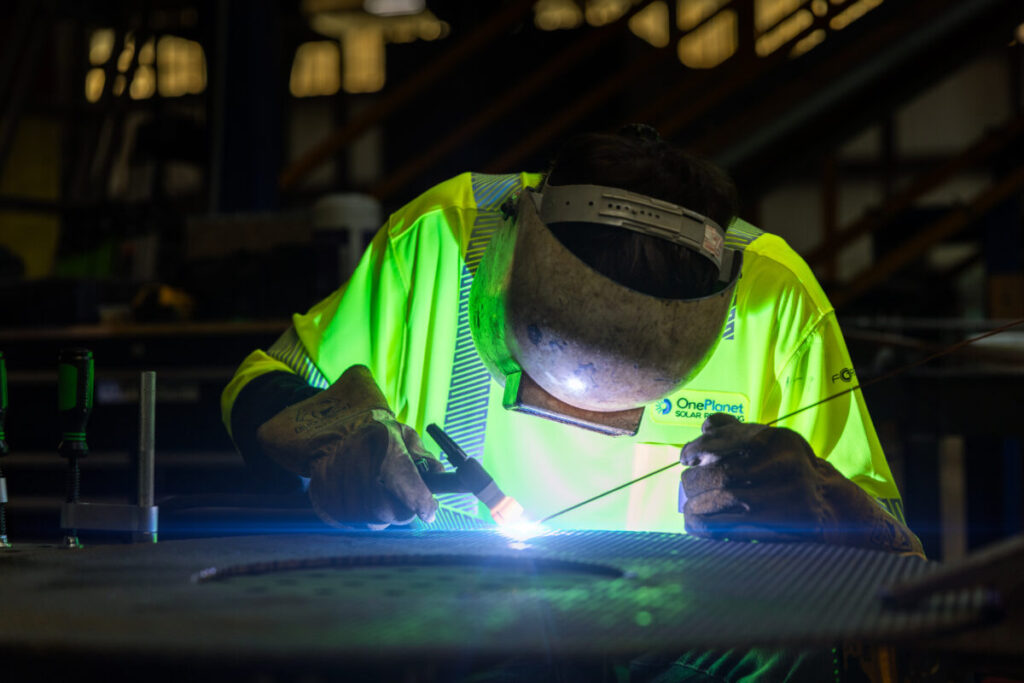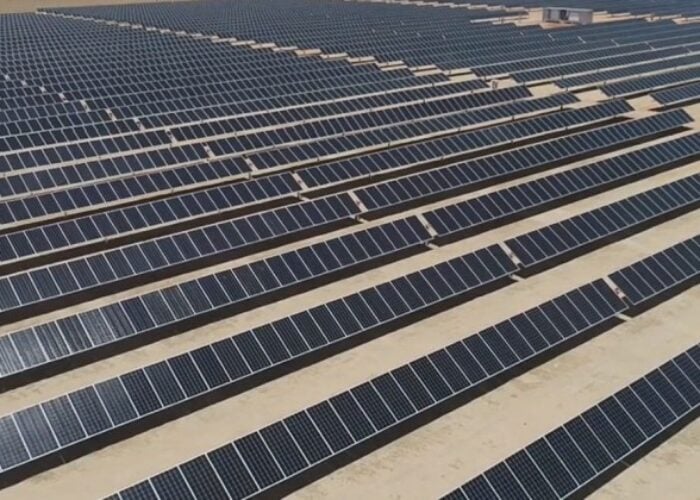
US solar recycling firm OnePlanet has achieved the R2v3 certification from electronics sustainability non-profit SERI, which represents the “highest standards of traceability”.
OnePlanet is establishing a solar module recycling facility in Florida, US, which it expects to commission, and capable of processing two million solar modules per year, by 2027.
Try Premium for just $1
- Full premium access for the first month at only $1
- Converts to an annual rate after 30 days unless cancelled
- Cancel anytime during the trial period
Premium Benefits
- Expert industry analysis and interviews
- Digital access to PV Tech Power journal
- Exclusive event discounts
Or get the full Premium subscription right away
Or continue reading this article for free
To achieve the R2v3 certification, OnePlanet had to track every material entering and leaving its facilities “to establish strong, verifiable traceability and certify that the company is properly recycling the PV modules”, the company said.
PV Tech has contacted OnePlanet for details of the process and the company’s current recycling capabilities. SERI is a multi-stakeholder organisation focused on reducing electronics waste and increasing sustainability practices across electronics sectors.
“The industry has a responsibility to implement verifiable mechanisms to guarantee that solar panels are being recycled and processed responsibly, yet as we speak with various stakeholders, it is clear that these expectations aren’t being met,” said André Pujadas, CEO of OnePlanet.
“At OnePlanet, we are committed to ensuring that the materials and metals extracted can be definitively traced to compliant, responsible end-users.”
The company claims to have developed “an advanced materials recovery process” to recover silicon, copper and aluminium from old or broken solar modules, with a view to establishing a circular supply chain to feed materials back into supply chains.
In April, OnePlanet secured two financing deals worth US$21 million to support the development and construction of its Florida facility. The first, a US$7 million seed financing round led by Khasma Capital, a low carbon infrastructure investment firm, would support the permitting and pre-construction activities for the facility in Green Cove Springs.
The second financing deal was a US$14.5 million tax credit through Department of Energy’s competitive Section 48C(e) Advanced Energy Project Programme, which was created to support advanced manufacturing and recycling facilities which focus on “critical materials”.
There are other firms pursuing solar recycling projects in the US, with different focuses. Solarcycle has established recycling plants in Texas and Arizona and is building a third in Georgia; the company has said it would pursue “high value” recycling, salvaging the silver used in solar cells to increase the economic case for module recycling, as well as the ecological one.
Solarcycle also plans to establish a facility to produce solar glass from recycled materials. In partnership with Arizona State University this summer, the company produced a test module using 50% recycled glass, which it said performed as well as an entirely new product.
Elsewhere, Korean-owned solar manufacturer Hanwha Qcells has established its own recycling business, EcoRecycle, as part of its solar manufacturing hub in the state of Georgia.






